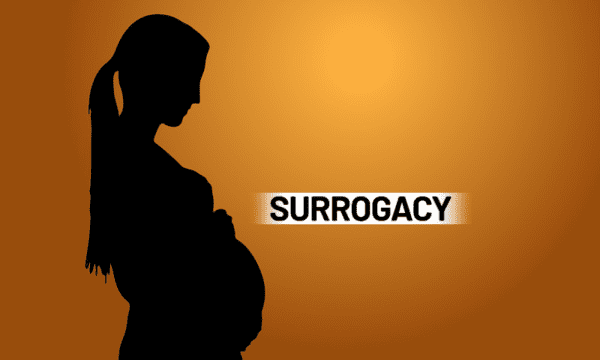
Surrogacy In North Carolina
In North Carolina, becoming a surrogate can be a thrilling and occasionally overwhelming procedure. Whether you’re an intended parent or a potential surrogate. Every state has its own surrogacy laws, and North Carolina is no exception. Although North Carolina does not have particular legal guidelines for surrogacy, formal contracts are usually used to carry out the process.
The lack of legal laws allowing it in North Carolina does not rule out the possibility of the procedure. On the contrary, Southern Surrogacy and other local North Carolina surrogacy providers have been executing legal, safe, and successful surrogacies for years.
Surrogacy professionals in this state have devised an efficient legal process that, when followed correctly, safeguards the rights of both surrogates and intended parents. Your legal surrogacy contract is critical to this process and should be drafted by an experienced surrogacy attorney in North Carolina. Once a contract is signed, your surrogacy process will be upheld under contract law.
Surrogacy Agreement
The surrogacy agreement spells out all of the expectations and duties of both parties. Separate attorneys should represent the proposed parents and surrogates in a surrogacy arrangement. These attorneys will discuss provisions of the contract such as:
1. Termination and selective reduction are examples of delicate subjects
2. Prior to, during, and following the surrogacy, each party’s obligations and expectations
3. Risks and responsibilities on the body and the mind
4. Mandatory custody decrees
5. Monetary payoff
How Surrogacy Works in NC
Professionals in surrogacy have set up a smooth, lawful procedure in North Carolina, which is modeled after those in states where surrogacy regulations are well-defined. Although each surrogacy journey is unique, most surrogacies will follow these standard procedures:
1. To assist you in fulfilling your surrogacy objectives, you will locate an intended parent or surrogate. You have three options for doing this: on your own, with friends and family, or through a surrogacy program.
2. Before a contract is signed or any medical procedures are started, you and your surrogacy partner must pass physical and psychological testing.
3. A surrogacy contract defining your rights, obligations, and liabilities will be drafted by your surrogacy lawyer. To safeguard your interests, separate lawyers will represent you and your surrogacy partner.
4. The surrogate will receive fertility drugs from a fertility center in order to be ready for the embryo transfer. After the surrogate visits her local obstetrician for prenatal care, she will return to the clinic after the operation is finished and she becomes pregnant.
5. An order establishing parental rights before birth will be started by the intended parents’ attorney during the final trimester of the pregnancy.
6. To be prepared for everything, the parties will draft a delivery plan for the surrogate’s hospital stay.
7. Finally, the intended parents will receive their new family member after the baby is born and all necessary legal actions are done to establish parental rights.
Benefits of Surrogacy
For intended parents as well as surrogate moms, surrogacy offers numerous advantages. When intended parents are unable to conceive naturally, surrogacy may provide them with a means of expanding their families. Adoption may not always be as expensive as surrogacy.
Surrogacy can be a fulfilling experience for surrogate moms. It might be a means of supporting people as they start families and change the world. In addition to receiving payment for their services, surrogate mothers may also receive financial benefits.
It is highly recommended that you look into the requirements and possible advantages of being a surrogate mother. You can make a more informed choice if you know more. One amazing approach to assist people in starting families is through surrogacy.
Frequently Asked Questions about Surrogacy In North Carolina
1. Do intending parents have to be married to pursue surrogacy in North Carolina?
There is no requirement for intended parents to be married, and individuals or couples can normally pursue surrogacy in North Carolina.
2. Is surrogacy covered by North Carolina insurance?
Surrogacy related medical expenses are not always covered by insurance. It is critical to discuss insurance issues with the surrogate, intended parents, and surrogacy agency.
Keep in mind that surrogacy regulations are subject to change, so it’s critical to speak with a legal professional that specializes in reproductive law to acquire the most accurate and up-to-date information tailored to your individual circumstance.
3. In North Carolina, how are parental rights created in a surrogacy arrangement?
The formation of parental rights should be addressed in the surrogacy agreement. Following the birth, legal processes may be required to secure the intended parents’ parental rights.
4. In North Carolina, are there any restrictions on the type of surrogacy arrangement?
In general, both traditional and gestational surrogacy arrangements are permitted in North Carolina. The surrogate in gestational surrogacy is not genetically linked to the child.
5. What are the legal requirements for the surrogacy contract?
A surrogacy agreement defines the rights and duties of all parties participating in the legal procedure. To ensure compliance with North Carolina legislation, it is critical to engage with an expert attorney.
6. Is surrogacy legal in North Carolina?
Surrogacy is lawful in North Carolina in general, but there are specific legal criteria and restrictions.

Leave a Reply